Commoning moves beyond the state and market, and beyond the consumerist-individualist household.
It’s not that every aspect of production or exchange must be in a commons - some kinds of markets, and some scales of commodity production and trade, are not intrinsically harmful; and some infrastructural activities and protocol activities on a ‘state’ or trans-regional scale are involved in maintaining subsistence and wellbeing on an equitable basis, across the globe.
Writing in 2009, radical social-venturer (Fairtrader) economist Robin Murray offered a powerful perspective - 'a provocation' - on crisis and 'the new social economy'. He pulled a focus on both the deep environmental challenge and on dramatic shifts occuring in the digital domain, in a 'post-Fordist', 'Age of Google' era of globalised capitalism .
> Murray (2009), Danger and opportunity - Crisis and the new social economy. London: Nesta/Young Foundation. pdf ![]()
>Robin Murray A lighthouse. Since he died in 2017, his work has formed a centre of my own, as a convenor of formations. Here we link to resources arising from his work and vision.
Robin drew this picture against a background of four 'grand sectors' of economy. While the historical forms of these sectors change (state forms, market forms, etc) there is a logic about the four-way structure that he presented in this way . .
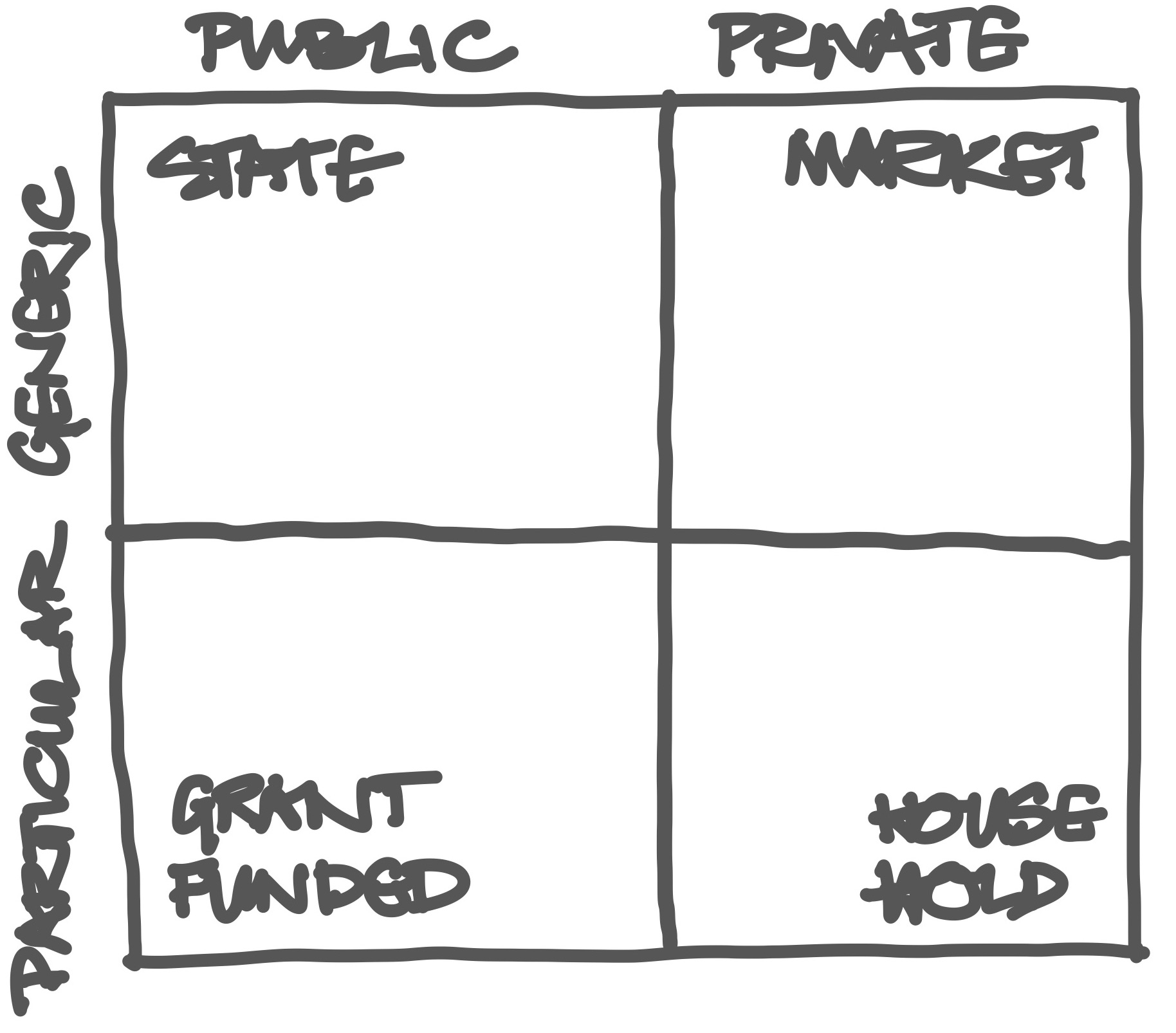
Four regimes of provision of means of subsistence and wellbeing
He described the significance of 'the new social economy' as being that it's constructed around altered relations of production. These bring altered forms of state, market and household activity, apparent in the post-Fordist crisis, and these emergent forces of production can be seen - and cultivated - as prefigurative forms of 'new social economy' . .
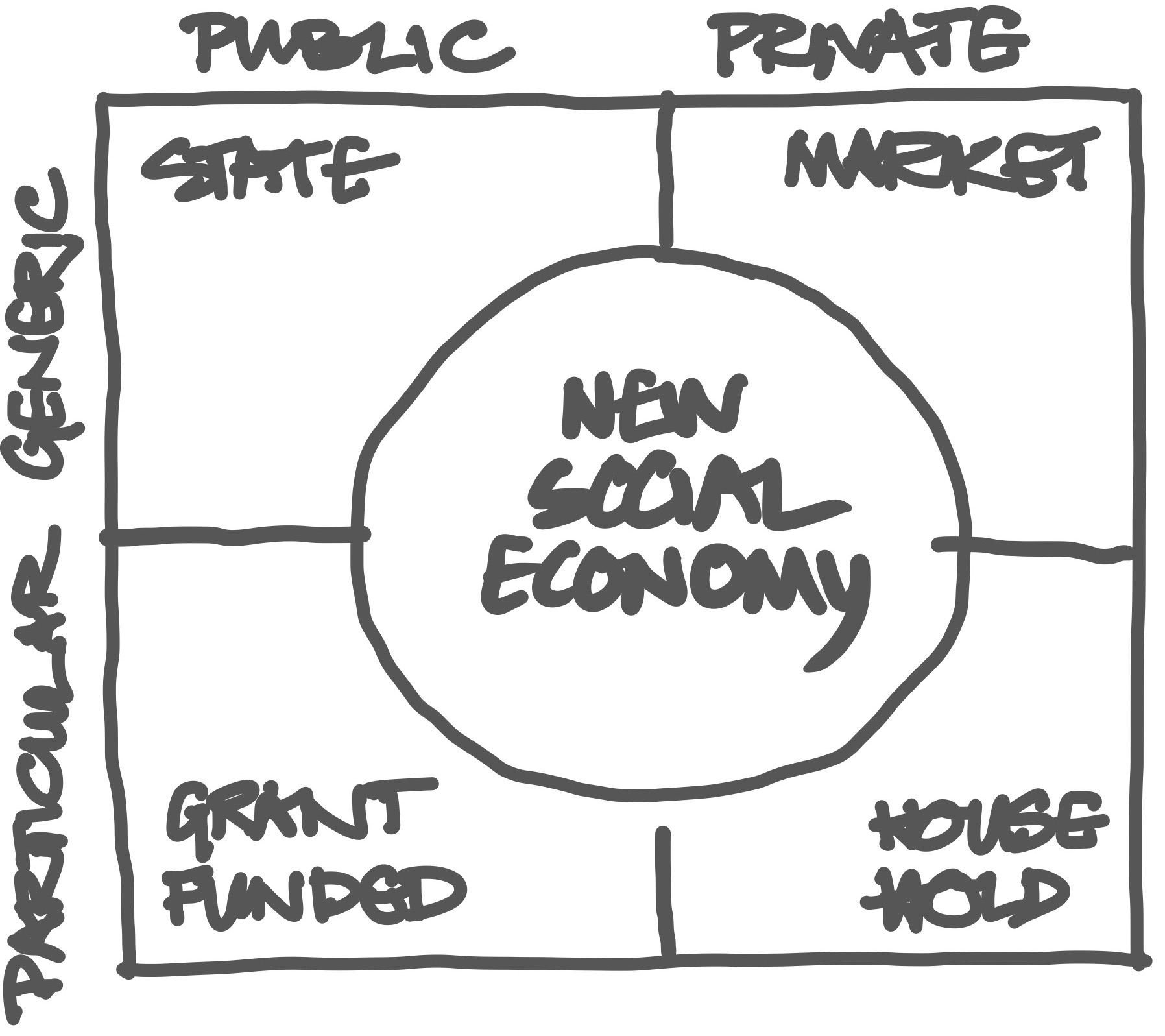
Altered relations of production, bringing an emergent 'social economy'
There are dynamic movements of activities of provision, across boundaries of (failing) state provision, emergent market (social enterprise, coops) provision, DIY household provision (self-service and 'sharing' economy) and radical ventures in civil society, in the mutual sector. A 'dance of provisioning' arises . .
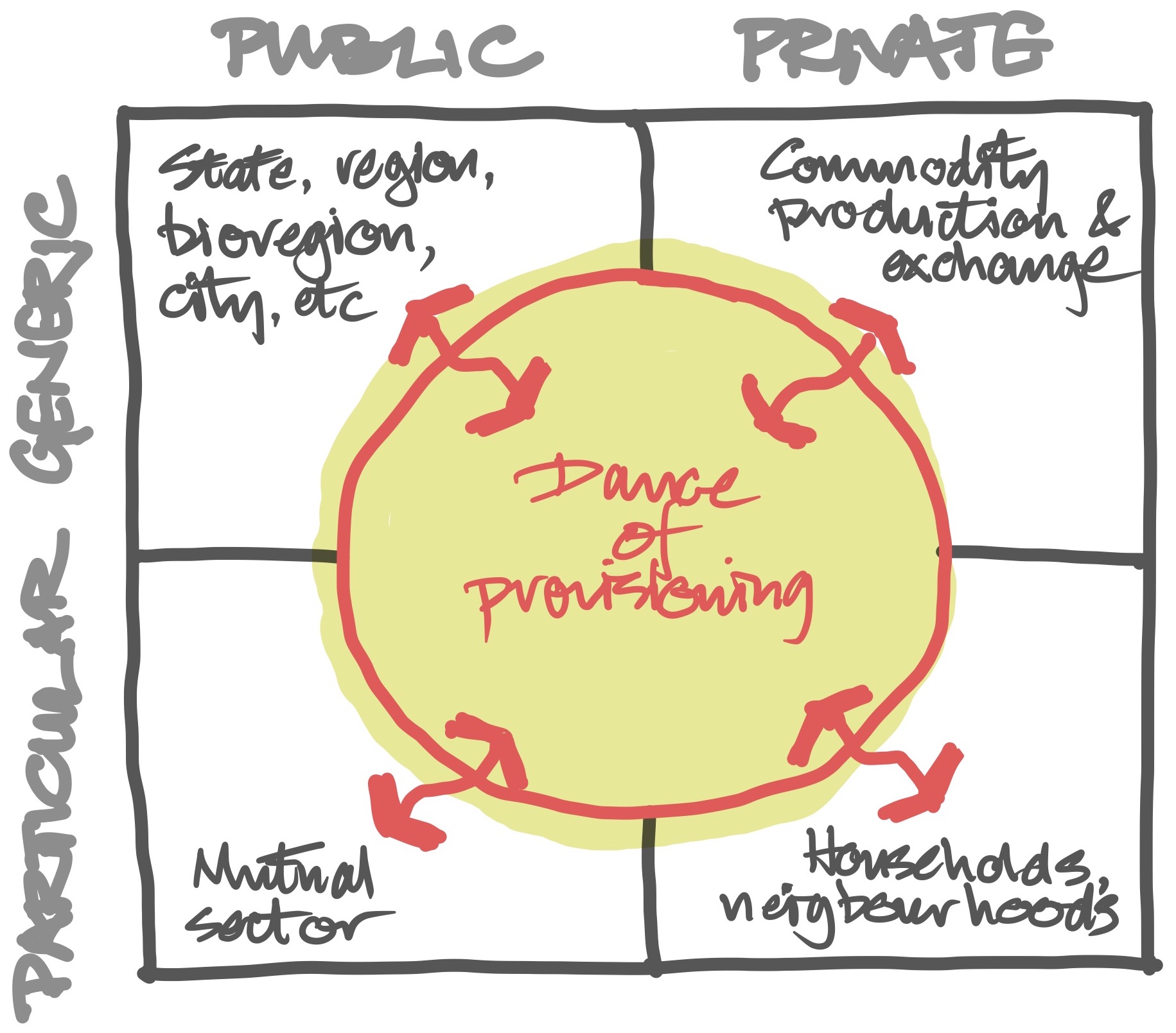
A dance of provisioning - Emergence and struggle in post-Fordist crisis
In the heart of the emergent forms of activity - both economic and cultural - are **peer-to-peer (P2P) relations of production**. P2P production is the basis of 'commons'. P2P relations are flat-out opposed to the relations conventional state/market/consumerist-household economy. Thus, at the heart of the emergent 'social' economy is a profoundly radical movement of commoning: the creation of historically new commons, in quite new sectors of the economy and culture.
> Stacco Troncoso, of Guerrilla Translations!, puts it thus: "The commons is the glue" . .
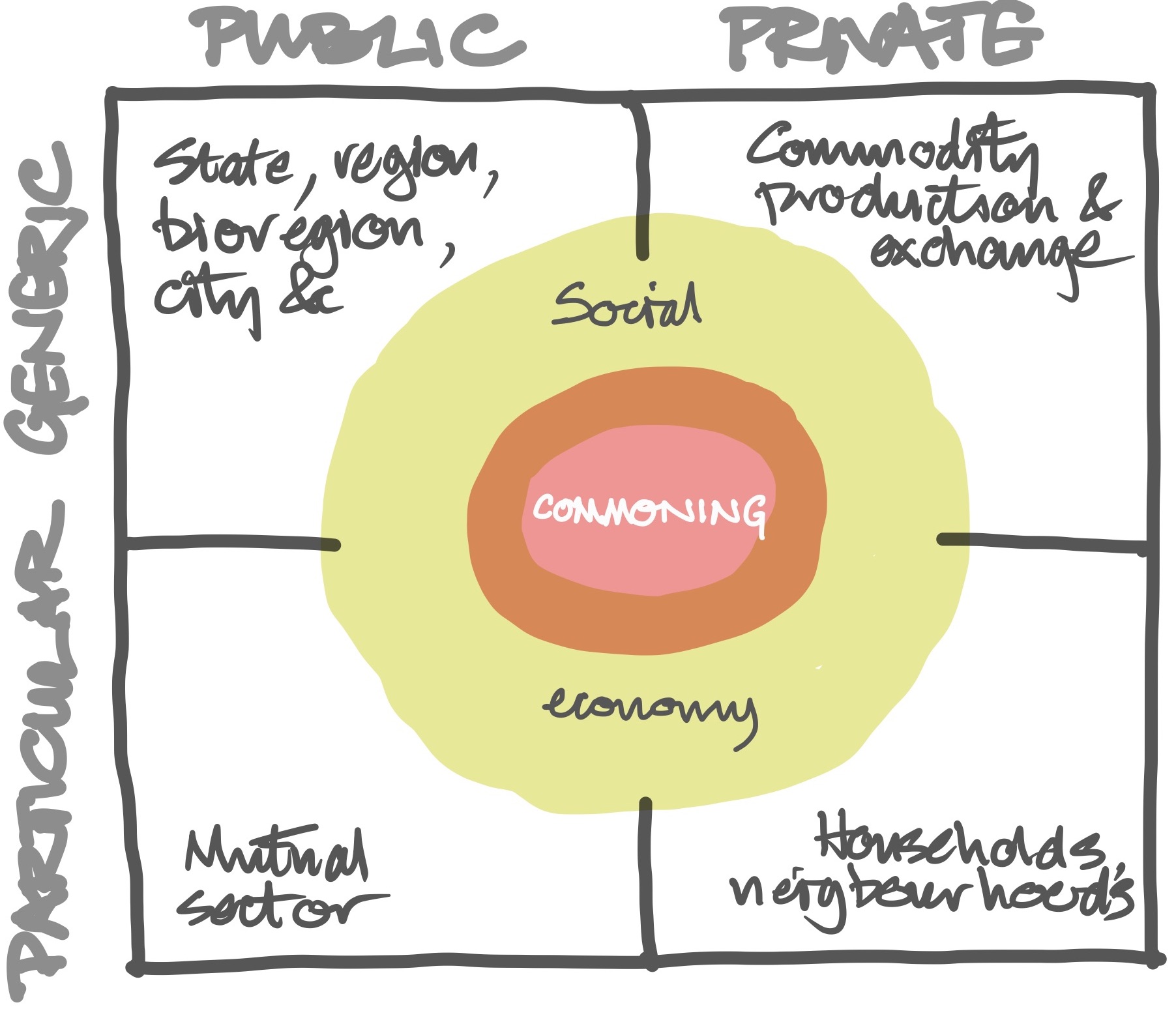
"The commons is the glue" - the radical core of new social economy - Beyond state, market and consumerist household
Commoning has the deepest of connections with the poor relation of Robin's orignal 'grand sectors'. In his analysis, the fourth sector - bottom-left quadrant - is named **'the grant-funded economy'**. Named thus, its sounds feeble, marginal - a world of well intentioned, dependent, 'unproductive' NGos.
But . . seen in the context of alteration of relations of production, which constitutes the (ambivalent, struggling) emergent social economy - and, at the heart of it, formations of radical commoning - this sector can now be seen as no less than the total economic and cultural force of global civil society: **the mutual sector** . .
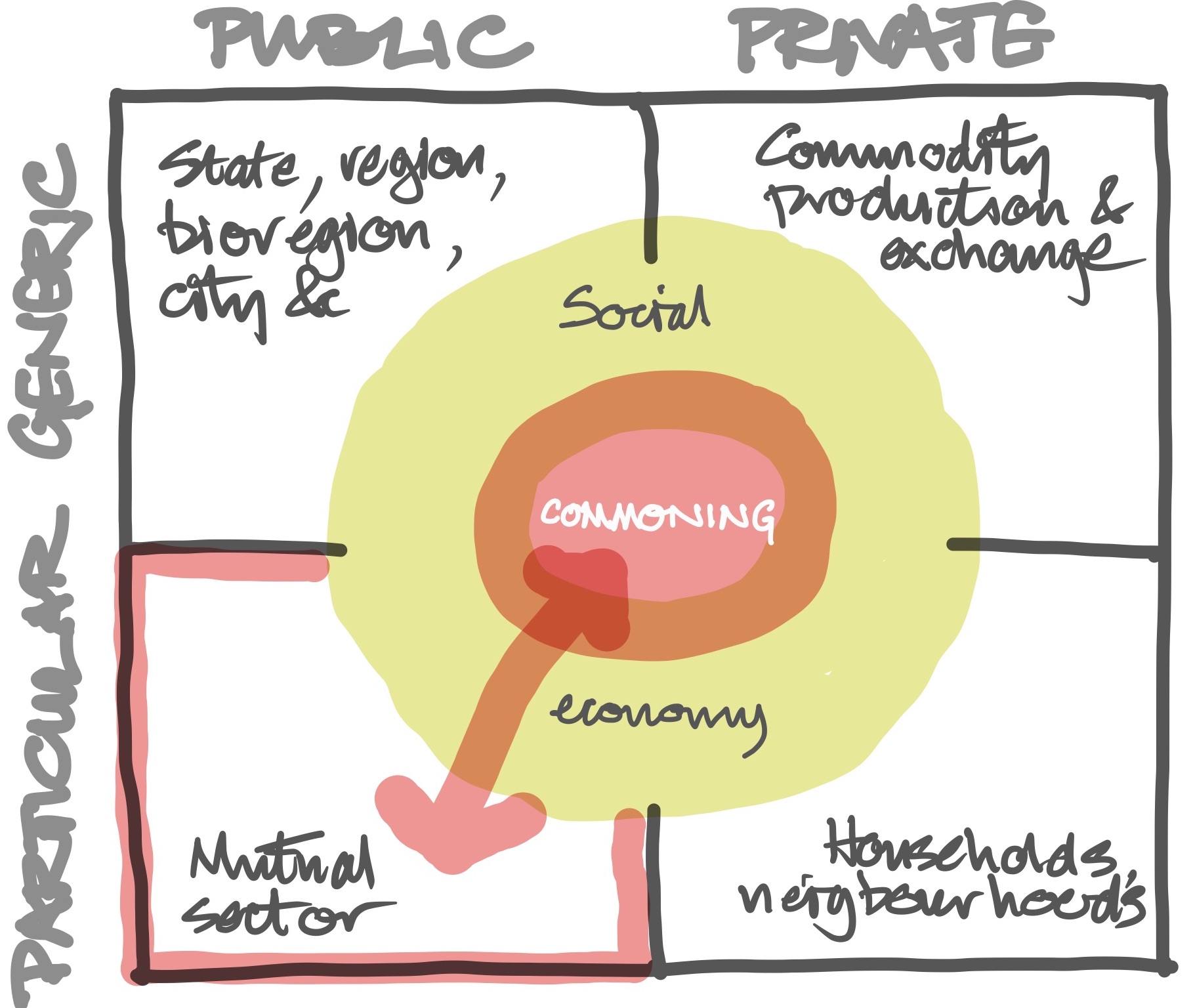
A deep relationship between emergent formations of commoning and forms of economic and cultural production in the pivotal mutual sector
The mutual sector acquires a pivotal historical role in the ongoing 'dance' of transformation.
In relation to the transformative politics of commoning and the making of the living economy, the work of the college proposed here is to cultivate **capability of formations in the mutual sector**, in knowing and organising.
The college is not a policy think tank, or a branch of the 'consultariat'. It is a workspace for the production of the literacy of social ventures - mutual sector ventures especially - in the **direct making** of living economy and commons culture.